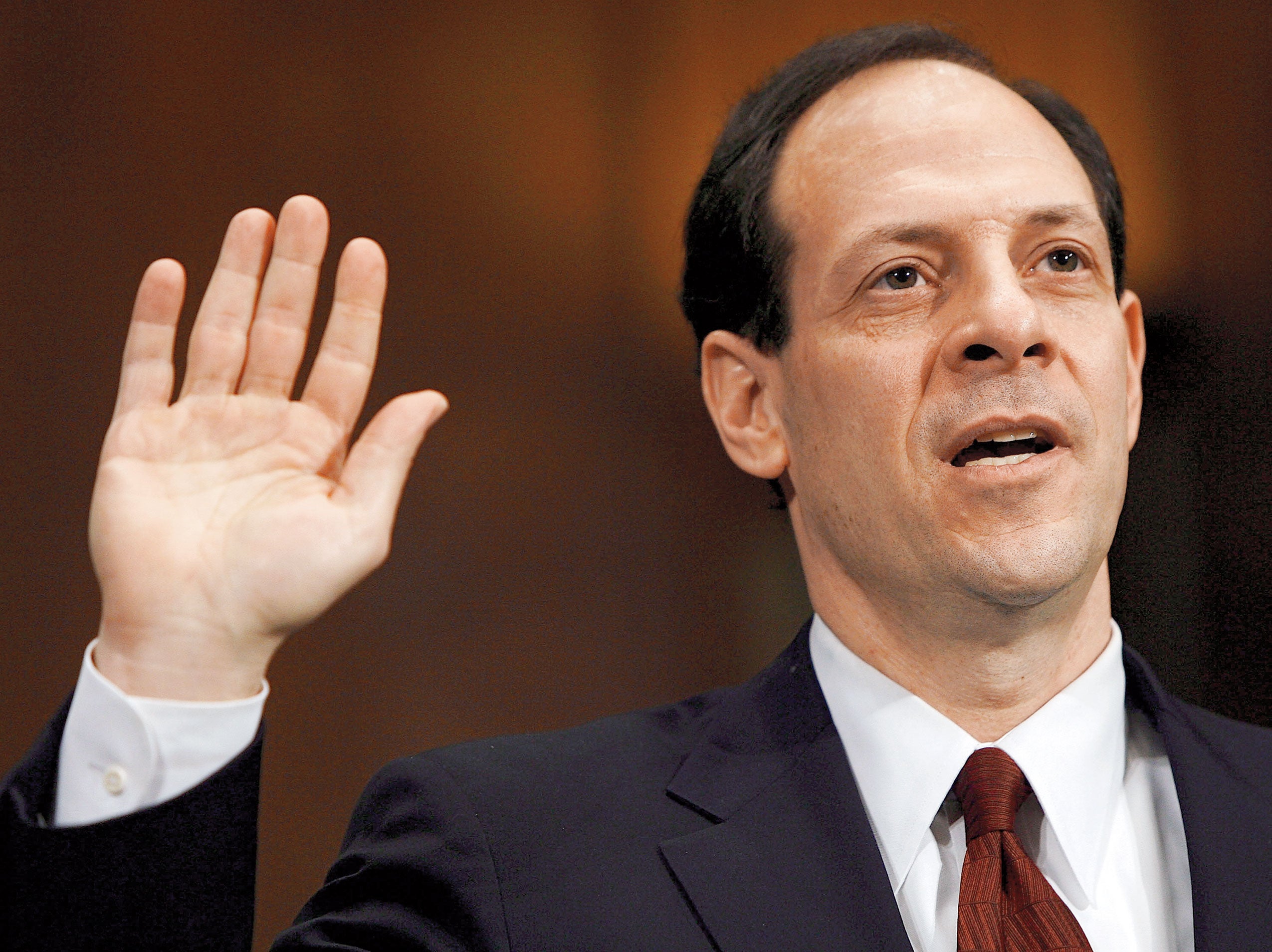Keeping Justice honest, from the inside
Few among us are paid to tell the boss that he has screwed up. Still fewer get to do it with the whole world watching, in a politically charged atmosphere, when what’s at stake is the rule of law, and even, sometimes, the Constitution.
As the Department of Justice’s inspector general, Glenn A. Fine ’85 does just that.
While Congress and the White House spar over allegations of executive overreaching and unauthorized action by the Justice Department, Fine’s job is to monitor how well the nation’s top law enforcement agencies—and his own superiors at Main Justice—comply with the law.
He did so with his 2003 investigation of and report on the treatment of detainees at Guantá namo Bay. His testimony before the Senate Judiciary Committee elicited praise from both Republican Orrin Hatch and Democrat Russ Feingold ’79, and the executive director of the American Civil Liberties Union singled him out in The New York Times for skillfully surmounting the Justice Department’s resistance to giving up the information required for his investigation.
In March, Fine’s report on the FBI’s misuse of national security letters under the Patriot Act detailed the bureau’s collection of information on American citizens who had no clear ties to terrorism and its failure to keep accurate records of the letters and the data they produced. Other reports he has issued detail the Justice Department’s indiscriminate roundup of Arab and Muslim immigrants after the Sept. 11 attacks, the FBI’s failure to locate two hijackers before the attacks, and the backlog of untranslated tapes and documents from counterterrorism investigations.
More recently, he has agreed to assess his department’s involvement with the National Security Agency’s warrantless surveillance program. In a Nov. 6, 2006, letter to Rep. Maurice Hinchey of the House Appropriations Committee, he wrote: “We have decided to open a program review that will examine the Department’s controls and use of information related to the program and the Department’s compliance with legal requirements governing the program.”
Fine is also playing a role in the department’s inquiry into the firing of eight U.S. attorneys, amidst allegations that the dismissals were politically motivated and engineered by the White House.
There has been an inspector general monitoring the actions of the Justice Department and its various law-enforcement agencies since 1989. But, says Fine, Sept. 11 probably made the position more prominent: “The Patriot Act gave a function to the IG of receiving and reviewing complaints of civil liberties abuses. With the added powers given to the department, there’s been an increase in the responsibilities given the Office of the Inspector General, and we have tried to fulfill those responsibilities as aggressively and fairly as we can.”
“We strive to be independent,” Fine says. “We also strive to earn the reputation of being tough but fair.” Of his national security letter report, he says, “I’m proud of it because we identified problems in the use of those letters, but we also pointed out how they can be used effectively and suggested corrective action for improvement.”
Fine emphasizes that his job doesn’t end with such recommendations. Following up on a 2002 report revealing that the FBI had lost weapons and laptop computers seized in terror-related sweeps, he and his staff recently checked to see if the bureau had fixed its problems. “We found continuing instances where they had lost laptop computers—and had not even determined what was on them, whether there was sensitive or classified information,” he says. “So, while they said they would take corrective action, and they had taken some, they had not fully implemented our recommendations.”
Fine graduated in 1979 from Harvard College, where he was co-captain of the varsity basketball team despite being just 5 feet 9 inches tall, and was known as tenacious, setting college records for assists. He was drafted by the San Antonio Spurs of the National Basketball Association, but instead of heading in that direction, he went to Oxford as a Rhodes scholar, and then to HLS.
He has worked for the OIG since January 1995. Initially, he was special counsel to the inspector general, and in 1996, he became director of its special investigations and review unit. In 2000 he moved up to the top job. Before joining the OIG, Fine practiced labor and employment law at a firm in Washington, D.C., and prior to that, from 1986 to 1989, he served as an assistant U.S. attorney in Washington, D.C., taking more than 35 criminal cases to trial in front of juries.
By all appearances, he enjoys his current post, although he acknowledges that it is not without its stresses. In March, he told a House committee: “Before I started this job as the IG, I was 6-9.”
